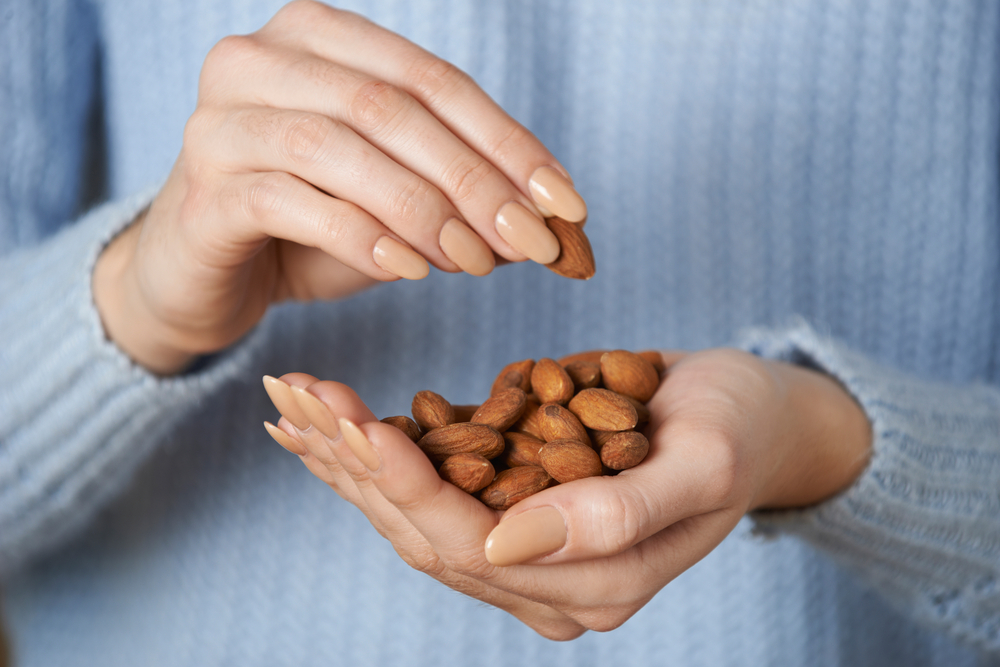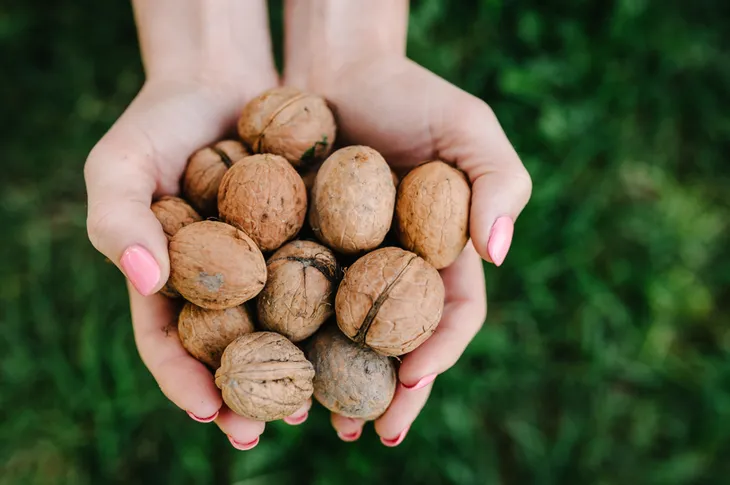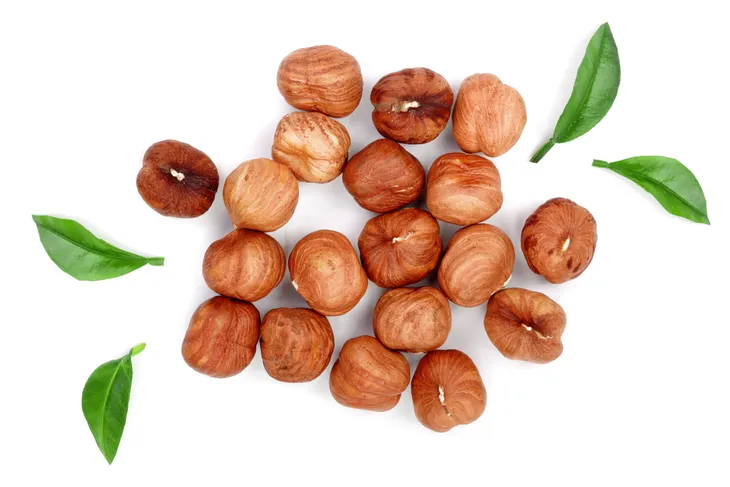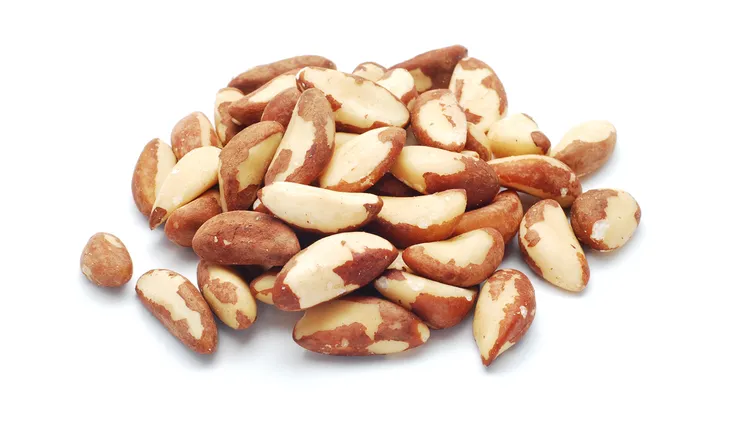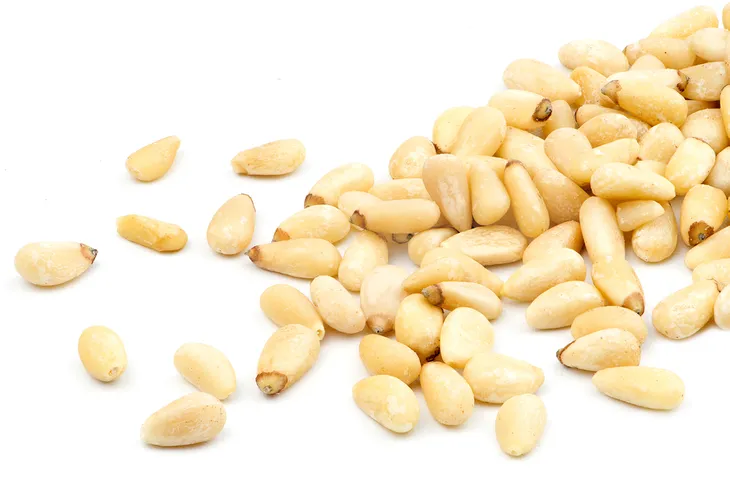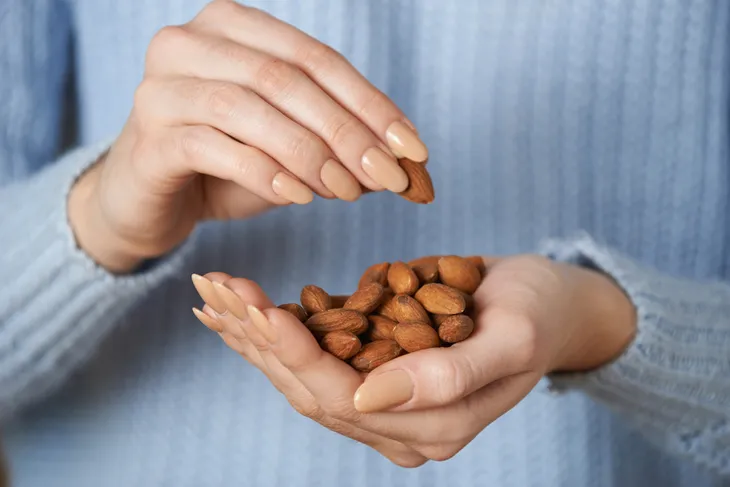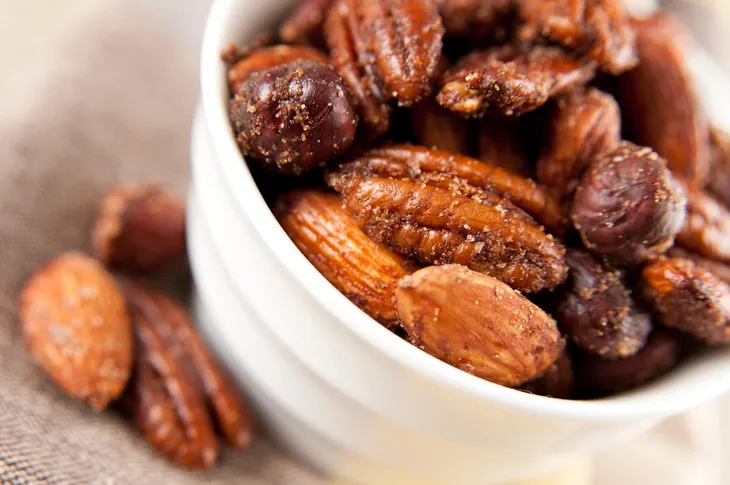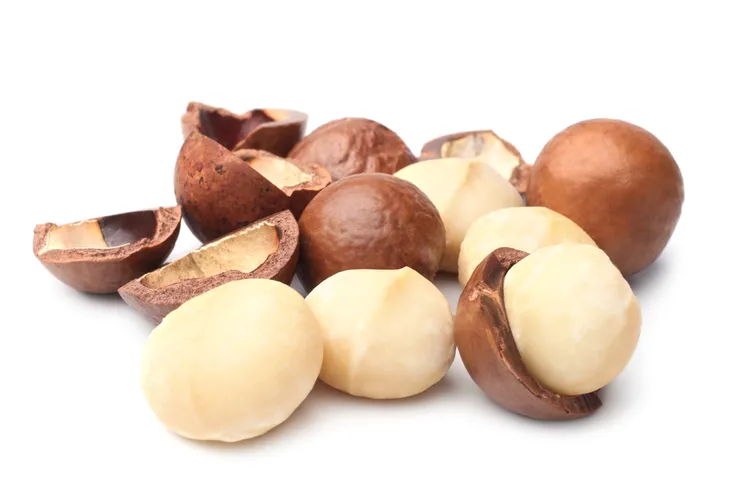For many reasons, nuts should be a staple of every healthy person’s diet. Put aside your fears of their fat content and focus on the many positive nutritional aspects of these crunchy snacks. Many studies have identified nuts as one of those rare superfoods, packed with hard-to-get nutrients and loaded with nutritional upside.
Eating a handful of nuts on a regular basis ensures a healthy dose of antioxidants, omega-3 fatty acids, fiber, protein and the good fats, monounsaturated and polyunsaturated, which increase good cholesterol while lowering bad cholesterol (HDL vs. LDL). Here is a list of the nuts that you should go out of your way to incorporate into your diet.
Want diet & nutrition content delivered straight to your inbox? Sign up for our exclusive diet & nutrition newsletter!
Walnuts
Perhaps the “King” of the nut family due to the amazing amount of nutritional value, walnuts are a must for any type of diet. Walnuts contain all the typical components of most nuts like protein, antioxidants, and omega-3 fatty acids. They also contain a number of other things that you won’t find in every nut, like Ellagic acid, a cancer-fighting substance usually found in fruits like pomegranate and strawberries. Ellagic acid has been found to have a beneficial influence on prostate cancer, according to 2010 study published in Molecular Nutrition and Food Research.
Walnuts are also packed with polyphenols, powerful antioxidants that rid the system of free radicals. A 2011 study published in Food & Function found that walnuts actually have the highest amount potent of polyphenols compared to any other nut. The study argued that walnuts can do quite a bit to fight chronic heart disease by reducing the inflammation associated with heart disease and improving blood flow.
Hazelnuts
Unfortunately, hazelnuts are one the least consumed nuts out there, which is a shame because they contain many health benefits. According to Healthline, a single serving of them contains 86-percent of the recommended daily amount of vitamin E, a very important vitamin for your skin, among other things. You’ll also get half of the daily dose of magnesium, a mineral that helps regulate the calcium levels in muscles and maintain the skeletal system. Post-menopausal women are often deficient in magnesium, which makes hazelnuts an excellent food for that particular population.
Then there are the B Vitamins: B1 (thiamin), B2 (riboflavin), B3 (niacin), B5 (pantothenic acid), and B9 (folic acid) are all present in high amounts in the hazelnut. As for the importance of B vitamins, it might be easier to list what B vitamins don’t do as opposed to trying to list everything that they are involved in. Suffice to say, they are important and hazelnuts are a great source for them. In other words, eat some.
Brazil Nuts
Brazil nuts sometimes scare people away due to their somewhat overwhelming appearance. While they are big and dark and can be intimidating, as far as food goes, they are loaded with minerals, including calcium, iron, copper, magnesium, potassium, and phosphorus. And while Brazil nuts contain high amounts of all these minerals, they are absolutely packed with selenium, an antioxidant that helps filter out free radicals from your system, according to WebMD. Selenium is also crucial to maintaining your immune system and regulating your thyroid gland.
Brazil nuts also contain high amounts of zinc, which make them an ideal food for those with acne problems. Zinc, after all, is believed to offer acne relief, as demonstrated in a 2013 French study published in Dermatology, among others. Brazil nuts may offer additional benefits to the skin due to the high amounts of selenium, which triggers the antioxidant glutathione. When this antioxidant gets to work, it helps fight wrinkles and keep skin looking young and healthy.
Pine Nuts
Pine nuts are a key ingredient in pesto, which is where most people probably come into contact with this gluten-free delicacy. Due to its seed-like characteristics, however, the pine nut is a versatile food that can add another layer of flavor to salads, pasta, yogurt, and other common dishes. And once you realize the health benefits that this pricey little nut has to offer, you might find yourself sprinkling it on everything.
Pinolenic acid is probably the most important health benefit that pine nuts have to offer because you cannot get this unsaturated fatty acid anywhere else. Pinolenic acid can help with weight loss because it curbs hunger by triggering two hormones that are hunger suppressants, GLP-1 and CCK. It also lowers cholesterol because it helps the liver filter out harmful LDL cholesterol, according to a 2004 study published in Lipids. And for those concerned about eye health, pine nuts contain lutein, a carotenoid that numerous studies have found to fight age-related macular degeneration.
Almonds
Besides being one of the most flavorful nuts, almonds also offer the highest amount of fiber as compared to any other nut. Almonds can contain as much as three grams of fiber per ounce, which makes them a great source for the fiber that the body needs for a number of reasons, all well documented at this point.
Almonds may also have a weight-loss component to them. A study published in the International Journal of Obesity found that people who consume almonds might be able to shed more pounds than those who don’t. The study followed two groups of obese people for six months. Each group was put on low-calorie diets, while one group was given almonds to eat on a regular basis and the other wasn’t. At the end of six months, the almond-eating group lost more weight than the other group. Like most nuts, almonds have also been found to help with combating high cholesterol and the development of heart disease.
Pecans
Pecans are absolutely packed with antioxidants. The USDA includes pecans in the list of top 20 foods for antioxidant capacity. The mineral content is also pretty impressive. Pecans contain a staggering 245-percent of the daily value of manganese, a mineral important for heart health. You can also get 65-percent of your needed copper from pecans, along with 33-percent of your needed zinc and magnesium.
For those suffering from diabetes, which is at least 25 million Americans and counting, pecans may be an ideal snack due to the high amount of oleic acid that they contain. Numerous recent studies have linked this monounsaturated fatty acid to helping better regulate the way glucose and insulin are produced in the body. Similar to the health benefits linked to the Mediterranean diet (oleic acid is a primary component of olive oil), pecans can offer those same benefits in bite-sized portions.
Macadamia Nuts
Macadamia nuts offer a very high amount of heart-healthy monounsaturated fats. It’s this high amount of fat that turned people off of macadamia nuts for so long, but, as we now know, the monounsaturated type of fat is beneficial to the cardiovascular system.
There are additional benefits associated with the macadamia nuts’ unique fatty acid profile. A diet that includes macadamia nuts can help modify the lipids in your bloodstream, primarily by reducing LDL cholesterol, which lowers the risk of cardiovascular disease. A 2008 study published in the Journal of Nutrition compared two groups of people with one group getting its fat primarily from macadamia nuts and the other group getting its fat from other sources. The study found that after 5-weeks the macadamia nut group decreased its LDL cholesterol levels much more than the other group.
Cashews
Cashews have a delicious, creamy texture, but are also packed with nutritional benefits. They’re a great addition to many meals and pair well with both savory and sweet dishes. Aside from their taste, cashews also offer a wide variety of health benefits.
According to Healthline, cashews are a good source of protein, vitamin K, magnesium, and manganese, which are crucial to support bone health. Some studies also suggest that cashews may improve blood fat levels and reduce blood pressure.
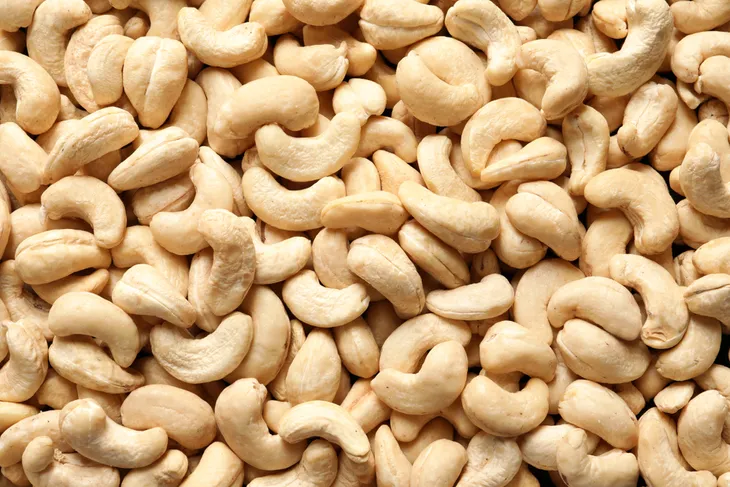 Shutterstock/New Africa
Shutterstock/New AfricaChestnuts
Chestnuts are another nut that is a strong source of nutritional benefits. WebMD explains that chestnuts can provide a boost of antioxidants, even after cooking. They’re also rich in gallic acid and ellagic acid, which are two antioxidants that actually increase in concentration when cooked.
Chestnuts are rich in vitamin C, which is unique among nuts. To put this into perspective, half a cup of raw chestnuts gives you approximately 23 to 45-percent of your daily intake of vitamin C. Chestnuts can be eaten raw, roasted, ground into flour, or mixed into pastries, among other ways.
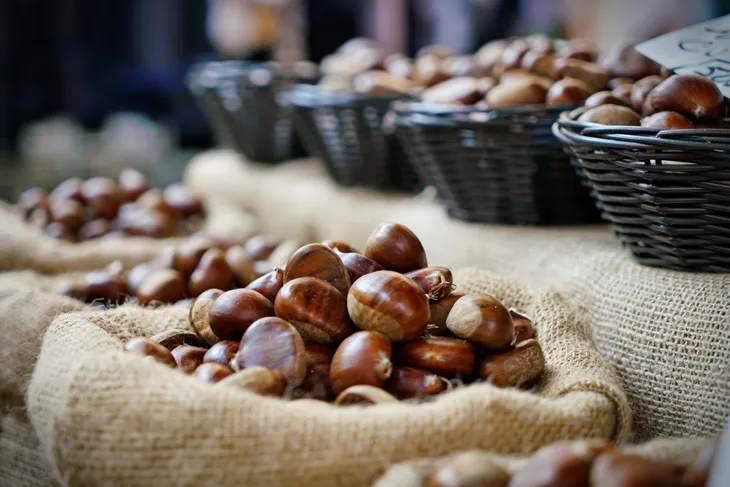 Shutterstock/MikeDotta
Shutterstock/MikeDottaPistachios
Pistachios are packed with nutrients yet lower in fat and calories than most nuts, according to Healthline. Pistachios are a good source of a variety of nutrients, including vitamin B6, which your body needs to boost your metabolism and immune function. They’re a good source of potassium, which can help to regulate fluid balance, muscle contractions and nerve signals.
Pistachios are also rich in plant compounds such as carotenoids lutein and zeaxanthin, as well as anthocyanins, flavonoids, and proanthocyanidins. These compounds all of which have significant antioxidant and anti-inflammatory properties.
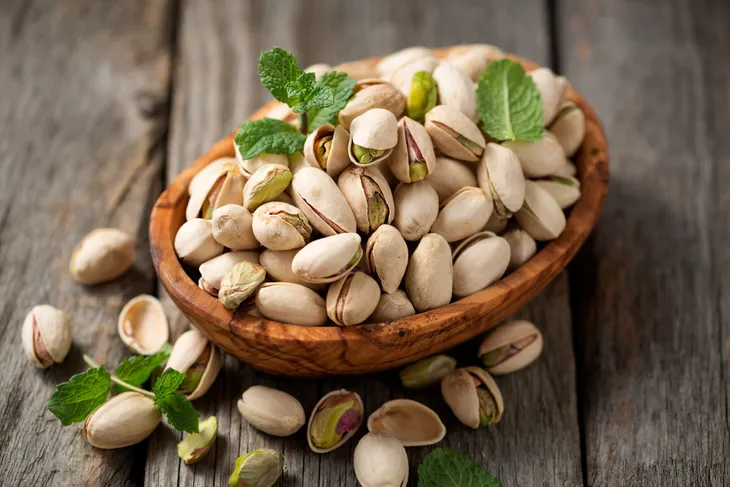 Shutterstock/nelea33
Shutterstock/nelea33Peanuts
While peanuts technically belong in the legume family, many still associate them as a nut due to their similar profile. Healthline explains that peanuts are a strong source of plant protein, which can help satisfy your appetite and help you stay full. They’re also high in folate, which is a B vitamin that’s especially important for expecting mothers due to its role in fetal development.
Peanuts come in a wide variety of forms including raw, blanched, roasted, boiled, fried, or powdered. It can also be made into peanut butter which can easily be added to bread, topped onto oatmeal or blended into a smoothie.
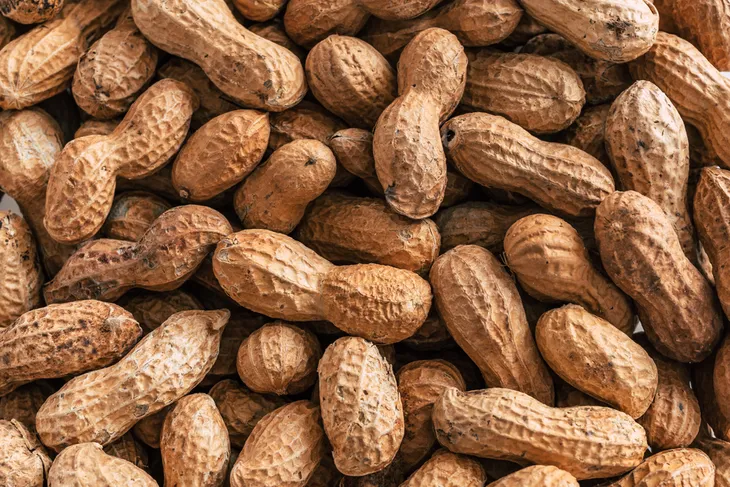 Shutterstock/naszalyg93
Shutterstock/naszalyg93Why You Should Eat Nuts
At this point, it’s clear why nuts should have a staple role in your diet. They’re a great source of fiber, healthy fats, and plant protein, among other benefits. Nuts may also reduce the risk of certain health conditions, including heart disease, cancer and stroke.
Best of all, nuts make for a crunchy, salty snack that are easy to grab on the go as a snack or combine into meals. Next time you’re looking to stock the pantry with snacks, be sure to pick up a variety of nuts to satisfy your craving for a snack yet also provide your body with a healthy boost.
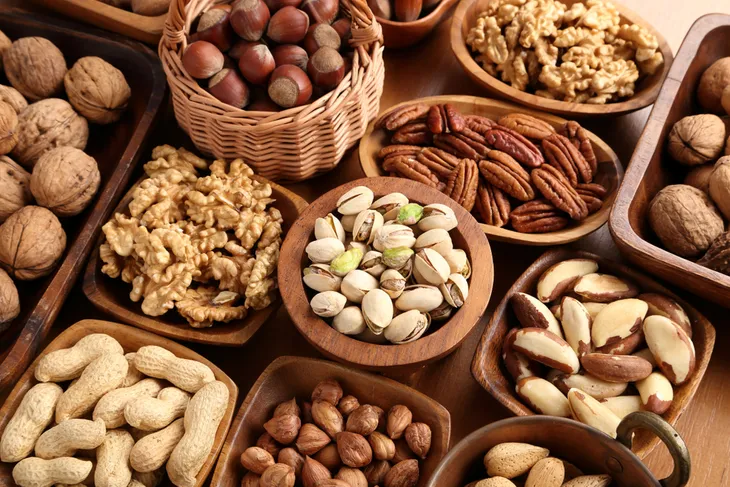 Shutterstock/Krzysztof Slusarczyk
Shutterstock/Krzysztof Slusarczyk